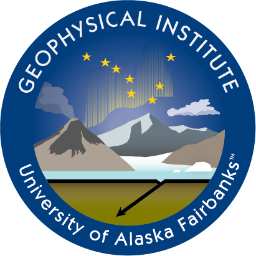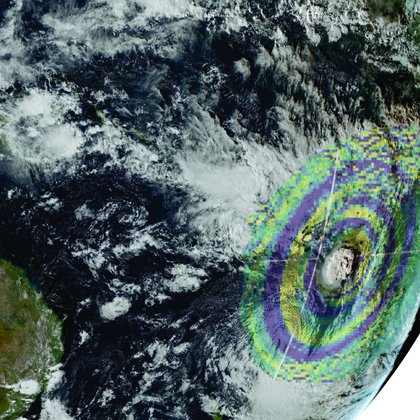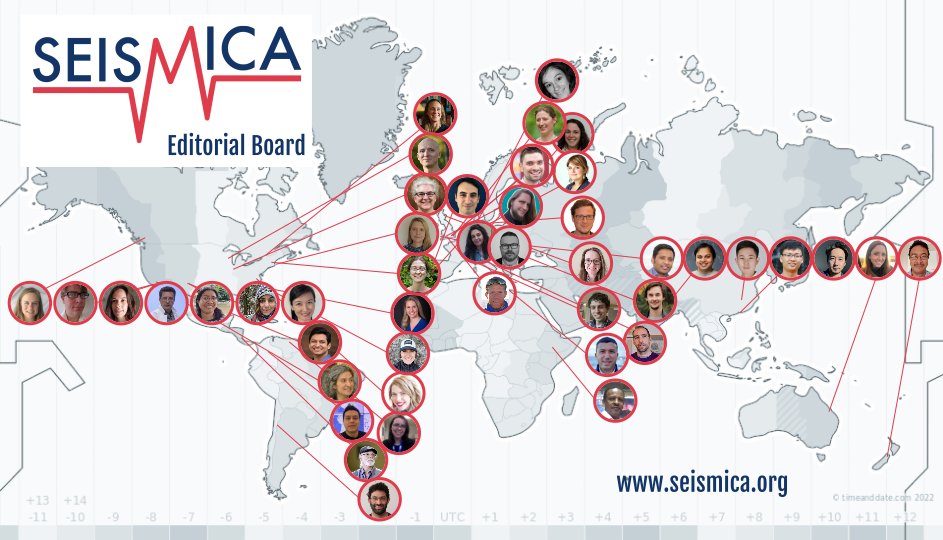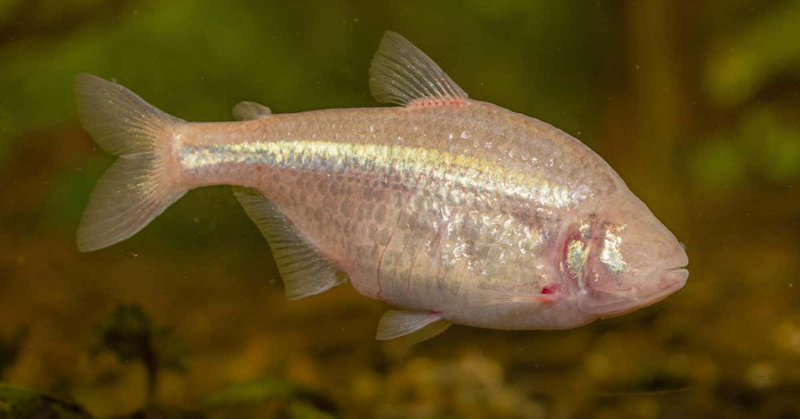
Earthtunes
@earthtunes_app
Followers
42
Following
130
Media
9
Statuses
152
Earthtunes is mobile application that helps you listen to normally inaudible sounds within the Earth beneath us.
Joined April 2021
Earthtunes is excited to join the Twitter community! Download the Earthtunes app on iOS to start exploring Earth's sounds. Learn more at
0
1
2
Did you know that the iOS App Earthtunes is available in Spanish?
0
1
1
Soundscapes are fascinating and informative, on Earth and other planets! The InSight lander on Mars has a barometer/very-low-frequency microphone. You can listen to it with the iOS App “Earthtunes”. Add your own station with net = XB, station = ELYS0, loc = 02, chan = BDO
Alien SoundScapes - A concise guide to the atmospheric acoustics of Venus, Mars, Titan, and Earth https://t.co/2thyB8yHlW
0
0
2
The use of sound to explore the oceans, to understand this variability, and to make the ocean more “transparent” has driven Andone Lavery’s research throughout her career. Learn more about her in the latest Acoustics Today Conversation with a Colleague. https://t.co/Tt3RdZ5s3M
0
3
9
Seismologists suspect explosions damaged undersea pipelines that carry Russian gas
1
13
28
We rarely notice that the substrates in our world are vibrating. Yet the use of vibrations in surfaces is hypothesized to be one of the oldest animal communication forms. Learn more in this Acoustics Today article! https://t.co/dBcX5ODwzp
@DrLouRoberts
0
8
18
Be heard!
TODAY is the last day to submit a presentation for the 2023 AAPT Winter Meeting. Don't miss out on this great opportunity to be heard! Submit a presentation now! #AAPTWM23
https://t.co/pbSbmrh0Ku
#AAPTConference #AAPTMeeting #CallforPresentations #research #teaching
0
0
0
Tomorrow is #WorldListeningDay! What does this year's theme "Listening Across Boundaries" mean to you? #WLD2022
1
6
20
The #Hunga volcano research paper by 76 scientists, including five from the @UAFGI’s Wilson Alaska Technical Center, is the cover of this month's @AAAS Science magazine. https://t.co/EMu13aaIeE
#Tonga #TongaVolcano
0
10
17
Listening to raindrops over the ocean surface using a hydrophone is analogous to listening to the rain under a tin roof. How can the underwater sounds of raindrops be used as a rain gauge for weather and climate? Find out in this #AcousticsToday article: https://t.co/8XE44YQhRY
0
7
29
Last but not least, we spotted a professional seismometer in the forest preserve, and examined and listened to local seismic signals from our group, using @earthtunes_app
1
1
2
🚨🌋 New #SeismoBlogPost out! Remember the Tonga volcano eruption from earlier this year? Here @jdassink from @KNMI walks us through some of the atmospheric and seismic observations following the climactic event. Check it out!👇 @EuroGeosciences
https://t.co/0xvP3niCI8
blogs.egu.eu
Jelle Assink, Senior Geophysicist at KNMI, takes us through the details of the various kinds of waves produced by the Hunga eruption in Tonga earlier this year… On January 15, 2022, a powerful...
0
11
25
AT COLLECTION - Hearing Health The hearing process involves many parts of the ear working together to convert sound waves into information the brain can understands & interpret. It's important to understand and avoid permanent damaged. https://t.co/oNZM0qxztm
0
2
3
Some neat Space science today with a possible meteor passing over the lower North Island this afternoon. This was felt by many people on the ground, and picked up by our seismic instruments around Wellington.
3
62
196
If you build it, they will come ... The Seismica Editorial Board has been working tirelessly to bring you the first diamond open-access journal for #seismology and #earthquake science. Seismica is now accepting manuscripts! Spread the word #WeAreOpen! #OpenAccess #PeerReview
5
78
201
100% Chance of an Earthquake today. But that is not necessarily a bad thing… https://t.co/sQmY97VBnc
#hazards #education
11
28
74
Volume 3 of “Into the Zooniverse” was published recently, featuring 20 citizen science projects, including Earthquake Detective. Dr. Tang and team are working hard on turning thousands of citizen detections into knowledge about earthquakes.
0
3
11
Fun fact: herrings can communicate through air expelled out of their backside—yes, aka communication through fish farting! Read more about them at https://t.co/rwORu7cMqj and https://t.co/ozeoA30iBT!
@bwilson999 #fish
2
21
99
Blind cave fish communicate via six different sounds, clicks, that vary in duration, pitch, and rate, and that are adapted to the cave they evolve in: https://t.co/xcRZB4NY4k
newscientist.com
The Mexican tetra has evolved to live in a number of dark caves – and now we know that the fish in each cave use clicks to communicate in distinct ways
0
0
0



























